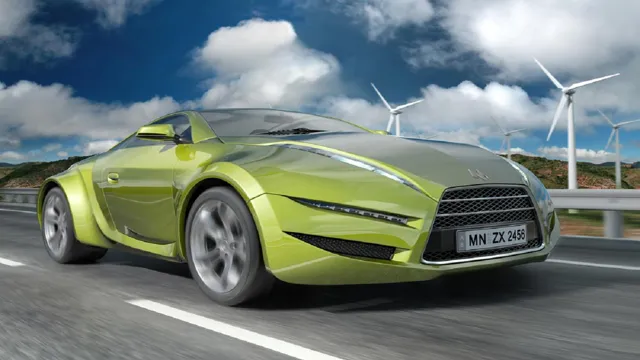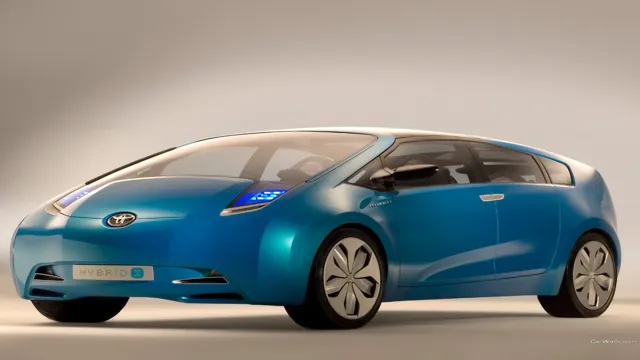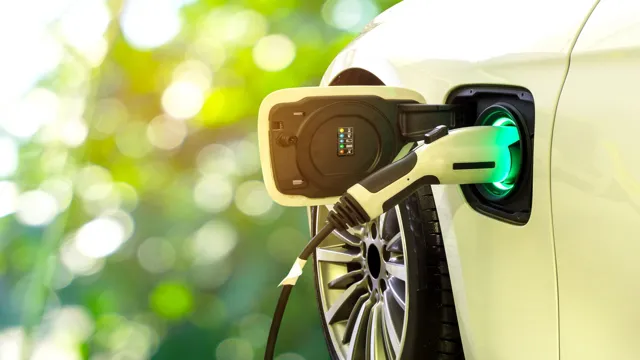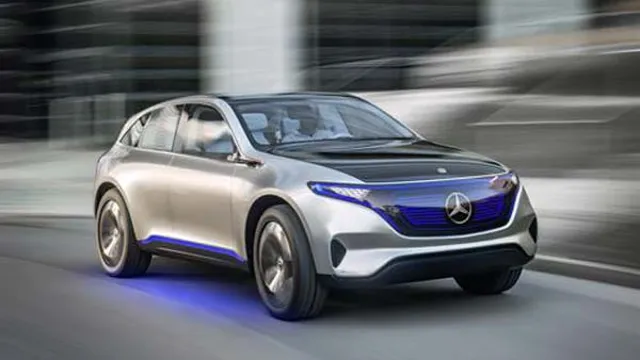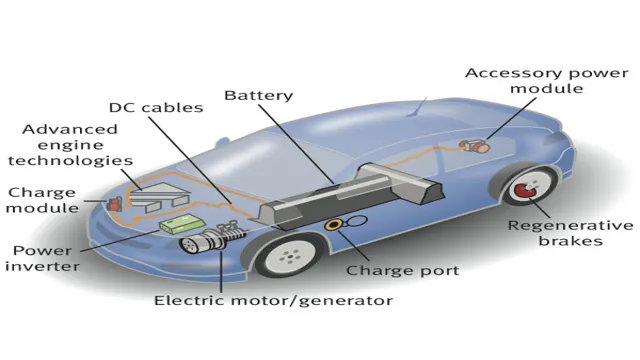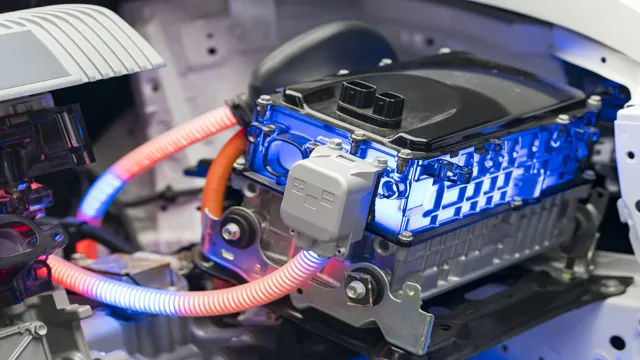Innovating Beyond Electric Cars: The Future of Sustainable Transportation
Electric cars have been the center of attention in the automotive industry for several years, with many experts predicting they will soon replace traditional gas-powered vehicles. However, recent events have cast doubt on this prediction, leading some to wonder: is this the end of electric cars? While the future of electric cars is uncertain, it’s important to understand the factors that are causing this doubt. One of the main problems facing electric cars is the lack of infrastructure to support them.
While more and more charging stations are being built, there are still far fewer of them than gas stations, making it difficult for electric car owners to travel long distances. In addition, the cost of installing charging stations can be prohibitively high, which means that many businesses are hesitant to invest in them. Another problem facing electric cars is the high cost of batteries.
While the price of batteries has been steadily declining, they are still much more expensive than gas tanks. Additionally, the production and disposal of batteries have some environmental concerns, and their over-dependency on rare earth minerals can make them difficult to acquire in large quantities. However, despite these challenges, many automakers are continuing to invest in electric cars.
In fact, some experts predict that electric cars will eventually become the norm as battery production costs continue to decrease and public charging infrastructure improves. In conclusion, the future of electric cars is still uncertain, but it’s clear that there are significant challenges facing their widespread adoption. Whether electric cars will be embraced as the future of transportation or whether they will be overtaken by another technology, it remains to be seen.
The emerging technology taking over
Electric cars have been the go-to option for environmentally friendly transportation for some years now. However, there is a new player in town that may soon replace electric vehicles entirely. Hydrogen-powered cars are quickly emerging as the next big thing in the automotive industry.
Unlike electric cars that require charging stations, hydrogen cars can be refueled like traditional gas-powered cars. Furthermore, they are more efficient as they convert hydrogen fuel directly into electricity, making them highly energy-efficient and sustainable. Although hydrogen-powered cars have yet to become commonplace, major car manufacturers such as Toyota and Hyundai have already begun producing them.
It’s now only a matter of time before these cars become more accessible to consumers and start taking over the roads. As technology continues to evolve, we can expect to see more groundbreaking innovations like hydrogen-powered cars that are designed to be eco-friendly while still offering better performance and functionality than their predecessors.
Introducing hydrogen fuel cell vehicles
Hydrogen fuel cell vehicles are the latest technological advancement in the automobile industry. They offer an array of potential benefits, including zero-emission, increased efficiency, longer ranges, and lower operating costs. The concept of hydrogen fuel cell vehicles utilizes hydrogen to generate electricity, which then powers the vehicle’s motor.
These vehicles have no tailpipe emissions, and the only by-product is water, making them a very eco-friendly option. Although hydrogen fuel cell vehicles are still a relatively new technology, they are quickly gaining popularity as they present a sustainable and efficient future. While hydrogen fuel cell vehicles are more expensive than conventional cars, their lower operating costs and efficiency make them a long-term investment for any eco-conscious driver.
It is evident that hydrogen fuel cell vehicles will play a massive role in the transition towards a sustainable future, and we can expect to see more of them on our roads in the coming years.
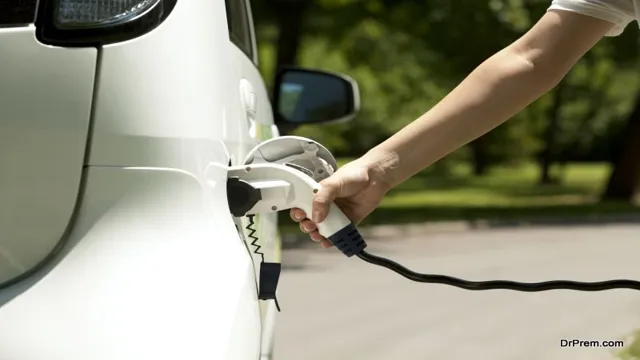
Why this technology is getting more attention
Blockchain is the emerging technology that is taking over the financial world. It may sound like a complex concept, but it’s essentially a decentralized, public ledger that records all transactions on a network. The reason why blockchain is getting so much attention is that it provides a secure and transparent way to conduct financial transactions.
Unlike traditional banking systems, the blockchain network does not rely on a central authority to process transactions. Instead, every participant in the network has a copy of the ledger, which eliminates the need for intermediaries and reduces the risk of fraud. This technology has the potential to revolutionize the way we conduct financial transactions by making them faster, cheaper, and more efficient.
With the rise of cryptocurrencies like Bitcoin, blockchain has become even more popular, and its applications are expanding beyond the financial industry. From supply chain management to voting systems, blockchain is being adopted by a wide range of industries and is set to become the cornerstone of the digital economy.
The environmental impact of hydrogen cars
With the push towards eco-friendliness, electric cars have served as the go-to choice for minimizing environmental impact. However, as technology advances, hydrogen cars are now seen as the new contender to replace electric cars. While the production of hydrogen does emit some greenhouse gases, unlike electric cars that rely on energy from the grid, hydrogen cars only emit water vapor.
Additionally, the production of hydrogen can be done using renewable energy sources such as wind and solar power, further reducing its impact on the environment. As hydrogen-fueled vehicles become more widely available and infrastructure expands, it is likely that they will become a common sight on the roads in the near future. With their zero-emission capabilities, hydrogen cars may very well lead the way in environmentally-friendly transportation.
Comparing emissions to electric and gas cars
When it comes to the environmental impact of cars, the choice between gas, electric, and hydrogen-powered vehicles can make a significant difference. While electric cars produce zero emissions, they are still dependent on the electricity grid, which might not be entirely renewable in some areas. On the other hand, hydrogen cars only emit water vapor and have a longer range than electric cars.
Additionally, hydrogen can be produced using renewable energy sources like solar and wind power, making it a more sustainable option in the long run. However, the infrastructure for hydrogen fueling is still in its early stages, making it less accessible and more expensive than gas or electric. Overall, each alternative has its pros and cons, but transitioning towards more eco-friendly options will undoubtedly benefit the environment for generations to come.
The potential for zero-net carbon emissions
The potential for zero-net carbon emissions is a game changer in the automotive industry. Hydrogen cars have emerged as one of the most promising technologies to achieve this goal. Unlike gasoline-powered vehicles, hydrogen cars emit only water vapor, making them a much cleaner alternative.
This is a significant step towards reducing greenhouse gas emissions globally. Hydrogen cars use fuel cells that generate electricity by combining hydrogen and oxygen. As a result, they have a longer range and shorter refueling time compared to electric vehicles.
Additionally, the production of hydrogen itself can be achieved through renewable energy sources, making it a sustainable alternative. The adoption of hydrogen cars on a large scale is still not feasible, mainly due to the high cost of production and infrastructure development. However, as more countries commit to net-zero carbon emissions, hydrogen cars could become a major player in the future of transportation.
Infrastructure for hydrogen fuel cell vehicles
“hydrogen fuel cell vehicles” Hydrogen cars are becoming more popular due to their lower environmental impact compared to traditional gasoline vehicles. However, the infrastructure for these vehicles is still in its early stages and needs to be expanded in order for more people to switch to hydrogen fuel cell vehicles. Hydrogen fuel stations are currently limited in availability, but there are plans to increase the number of stations as the demand for these vehicles grows.
Additionally, the production of hydrogen requires renewable energy sources in order to truly be environmentally friendly. Despite these challenges, hydrogen cars have the potential to greatly reduce carbon emissions and contribute to a cleaner future. It’s important for the industry and consumers to work together to create a more sustainable infrastructure for hydrogen fuel cell vehicles.
Goodbye charging stations, hello refueling stations
Imagine being able to refuel your car just as quickly and easily as you do with gas, without the need for constant charging and long wait times at charging stations. Well, this could soon be a reality thanks to a new technology that is set to replace electric cars. The technology involves using hydrogen fueling stations that generate electricity through a chemical reaction, allowing for quick and efficient refueling times.
This new innovation would eliminate the need for charging stations altogether, providing a more convenient and efficient way to power our vehicles. The best part? This new technology is not only more sustainable than gas-powered vehicles, but it also emits zero emissions, making it a win-win for both drivers and the environment. So say goodbye to charging stations and hello to refueling stations – the future of transportation is looking brighter than ever.
Refueling time vs charging time
When it comes to electric vehicles, there has always been the issue of charging time versus refueling time. While charging stations seem to take forever to fill up your car’s battery, refueling at a gas station takes just a few minutes. However, with advancements in technology, the tables are starting to turn.
As more car companies introduce fast-charging capabilities, refueling an electric car is becoming almost as speedy as filling up with gas. Additionally, major players in the industry are investing in creating a network of supercharging stations to make refueling even more convenient. So, while we may have bid farewell to gas stations in the future, we can say hello to refueling stations for electric cars.
Hydrogen fuel cell vehicle availability
Hydrogen fuel cell vehicles are becoming more readily available, making it an exciting time for clean energy transportation. Instead of being restricted to charging stations like electric vehicles, hydrogen-powered cars will be able to refuel at dedicated stations. This means that drivers won’t have to worry about running out of power or waiting for long charging times.
Plus, hydrogen fuel cells generate electricity through a chemical reaction within the vehicle, releasing only water vapor as a byproduct. With hydrogen fuel cell vehicles hitting the market, the future of transportation looks bright for those who value sustainability and convenience.
The future of transportation
Electric cars have been one of the leading options in environmentally friendly transportation. However, new technology is currently being developed to replace electric cars in the future. Hydrogen fuel cell vehicles are set to revolutionize the industry since they will emit only vapor and heat while driving.
Additionally, their refueling process is swift and comparable to that of a traditional gasoline-powered vehicle. The only byproduct that fuel cell vehicles produce is water, making them a completely clean and green transportation alternative. Even though they are more expensive than electric cars, a continuous reduction in prices is expected as the demand for them rises.
As a result, these hydrogen fuel cell vehicles could be a significant improvement to our environment and transportation needs.
Conclusion
In the race towards a sustainable future, electric cars were once hailed as the revolutionary solution to our transportation woes. But as technology advances at lightning speed, it’s time to say goodbye to the old and welcome the new. The next wave of transportation technology promises to be sleeker, faster, and even more eco-friendly.
From hydrogen-powered vehicles to self-driving cars, the possibilities are endless. So let’s fasten our seat belts and prepare to take the next big leap towards a greener and smarter future with new technology to replace electric cars!”
FAQs
What is the new technology that might replace electric cars?
Hydrogen fuel cells are poised to become the next big thing in clean transport, and they might replace electric cars in the near future.
How do hydrogen fuel cells work?
Hydrogen fuel cells use a chemical reaction between hydrogen and oxygen to generate electricity, producing only water and heat as byproducts.
How do hydrogen fuel cell cars compare to electric cars in terms of range?
Hydrogen fuel cell cars can generally travel further than electric cars on a single tank, with some models boasting a range of over 300 miles.
Are there any downsides to using hydrogen fuel cells instead of electric batteries?
One downside to hydrogen fuel cells is that there are currently fewer refuelling stations available for them than there are charging points for electric cars. Additionally, the cost of producing and storing hydrogen is currently higher than that of generating and storing electricity.
